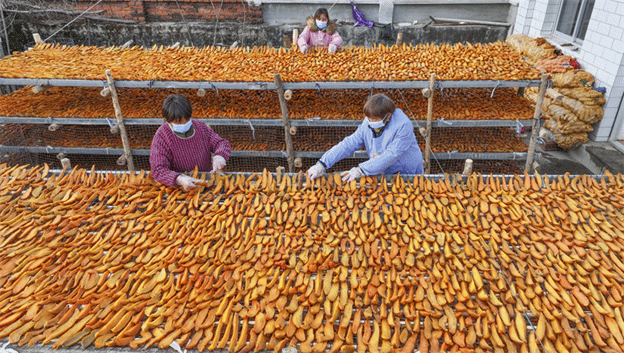In recent years, the mountainous region of Zunhua, Hebei, has become a model of how strategic crop diversification and value-added processing can drive rural development. Sweet potatoes, traditionally a staple crop, have been elevated to a high-value commodity through innovative processing techniques spearheaded by local farmers and cooperatives.
Why Sweet Potatoes?
Sweet potatoes thrive in Zunhua’s mountainous terrain, where soil conditions and climate are ideal for their growth. The crop requires minimal inputs compared to other staples, making it economically viable for smallholder farmers. According to the Food and Agriculture Organization (FAO), China is the world’s largest producer of sweet potatoes, accounting for over 50% of global production in 2022.
Value-Added Products Driving Growth
To capitalize on this abundance, farmers in Zunhua have focused on processing sweet potatoes into high-demand products such as:
- Dried Sweet Potatoes: A popular snack both domestically and internationally.
- Sweet Potato Vermicelli: Known for its chewy texture, it is a staple in Chinese cuisine and increasingly popular in global markets.
These processed products command significantly higher prices than raw sweet potatoes. For example, dried sweet potatoes can fetch up to three times the price of fresh ones, while vermicelli can be sold at even higher margins.
Cooperative Success
Farmer cooperatives in Zunhua play a pivotal role in this transformation. By pooling resources, these cooperatives have invested in processing facilities and adopted modern drying and packaging technologies. As a result, they have improved efficiency, reduced post-harvest losses, and ensured consistent product quality.
- Economic Impact:
A local cooperative reported that the average income of member farmers increased by 40% within two years of adopting value-added processing. - Employment Creation:
The processing industry has created numerous jobs in sorting, drying, packaging, and distribution, providing additional income opportunities for local communities.
Challenges and Opportunities
Despite the success, challenges remain:
- Market Access: Farmers need better connections to international buyers to expand their reach.
- Training: There is a need for capacity building to teach farmers advanced processing and marketing skills.
- Sustainability: Scaling up production must align with sustainable agricultural practices to protect the fragile mountain ecosystem.
Government initiatives and collaborations with agricultural researchers have begun addressing these issues. Programs focusing on rural e-commerce platforms and export support are opening new markets for Zunhua’s sweet potato products.
The transformation of mountain sweet potatoes in Zunhua exemplifies how value-added agriculture can drive rural development. By leveraging local resources, embracing cooperatives, and focusing on innovative processing, farmers have significantly boosted their incomes while creating a sustainable agricultural model. For other regions with similar conditions, Zunhua’s success serves as a blueprint for unlocking the potential of staple crops through value addition.





